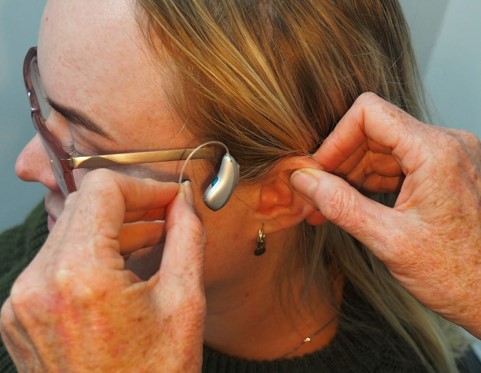The First Steps on Your Journey to Proper Hearing
Hearing is people's most social sense as it allows them to connect with the world and communicate with other people. It also enables them to hear the most beautiful sounds that enhance their overall quality of life such as a child's laugh, music and the sounds of nature.
Unfortunately, hearing decreases over time for a number of reasons, with old age and high exposure to loud noises being two of the most common causes. This can truly affect a person's life, leading to more severe health conditions with adverse consequences on their overall well-being.
Although once damaged hearing cannot be restored, there are plenty of ways you can improve it. From taking precautionary measures to protect your hearing to making use of hearing aid devices, here is the ultimate guide outlining the first and most important steps you need to take on your journey to proper hearing.
Schedule an appointment with an audiologist
As soon as you notice the first signs of hearing loss, you should immediately schedule an appointment with a hearing care professional. Your doctor will perform a thorough hearing examination which will help them define the type of hearing loss you have and what kind of treatment you need.
Typically, most hearing examinations occur in a quiet, sound-treated room and include undergoing a few tests such as a physical examination of your ears, or commonly known as otoscopy, audiometry, speech testing, tympanometry, acoustic reflexes and distortion product otoacoustic emissions (DPOAE testing).
In order to receive the best care and diagnosis, you should book an in-office evaluation with audiologists from the most reputable hearing aids centers near you. Some of these centers can even offer consultation from the comfort of your home in case you are unable to travel.
Learn how you can protect your hearing
Another important step you need to take on your journey to proper hearing is to learn how you can protect it. In addition to performing regular checkups, other precautionary measures you can take include:
- Avoiding loud noises
- Wearing protective hearing gear
- Giving your ears time to rest and recover
- Taking proper care of your ears
- Managing stress levels
For example, if you find yourself in a noisy environment such as a rock concert, a movie theater or a sports event, you should always wear protective hearing gear such as earplugs. This way you will be able to reduce harmful sound levels while still maintaining the quality of the original sound as closely as possible.
Also, another effective way to protect your hearing is to alleviate stress levels. High stress can easily trigger tinnitus, causing you to experience constant ringing, buzzing or hissing in your ears. To manage your stress, you can exercise and meditate regularly.
Explore various hearing aid devices
If you have difficulties hearing well, there is a great possibility that your health care professional will recommend you use a hearing aid device to improve your hearing. However, in order to reap the most benefits of these devices, it is important that you first explore the different types of hearing aids available.
As a starting point, there are two basic types of hearing aid devices, and these are in-the-ear (ITE) hearing aids and behind-the-ear (BTE) hearing aids. The first one is worn in the ear canal, whereas the latter sits behind or on top of the outer ear. Both types come in different styles, allowing you to choose the one you believe best suits you.
As you are choosing your hearing aid device, make sure you keep a few things in mind such as the type of hearing loss you have, your age, how well you can manage small devices, your lifestyle, and most importantly cost.
Final thoughts
Hearing is undoubtedly one of the most important senses. Unfortunately, it can decrease over time for a variety of reasons which can further affect your quality of life. In order to reduce the risks, it is imperative that you take precautionary measures to protect your hearing and improve it when necessary.
From scheduling regular appointments with healthcare professionals to doing your best in avoiding loud noises, wearing protective hearing gear and managing stress levels, there are several steps you can take on your journey to improve your ability to hear.
839GYLCCC1992





Leave a Reply